February 11, 2021
WARNING: This story contains graphic content and images.
When a car crossed two lanes to cut him off on a street in St. Catharines, Ont., in 2013, Don Plato thought nothing of laying his hand on the horn.
After the other driver slammed the brakes, Plato was forced into a screeching stop to narrowly avoid a collision.
Then the incident took a violent turn.
The other driver got out and walked back to Plato's vehicle. The man reached in through the open window.
"He grabs me by the hair and ears and just like [that] he's trying to pull me out of the truck," Plato later told Niagara Regional Police.
"The scary thing was, if we would've been out in a dark neighbourhood where there was no witnesses, I don't know where this guy would've stopped."
- Watch "Policing the Police" on The Fifth Estate on CBC-TV or CBC Gem Thursday at 9 p.m.
The man trying to pull Plato out of his truck was Nathan Parker, an off-duty Niagara Regional Police officer.
Unbeknownst to Plato, the constable had a history of violence against members of the public. Despite being disciplined by his police force, Parker had kept his job.
His case is one example of how police with serious disciplinary records are permitted to stay on the job, and how their discipline is often dispensed out of the public eye, an investigation by CBC’s The Fifth Estate has found.
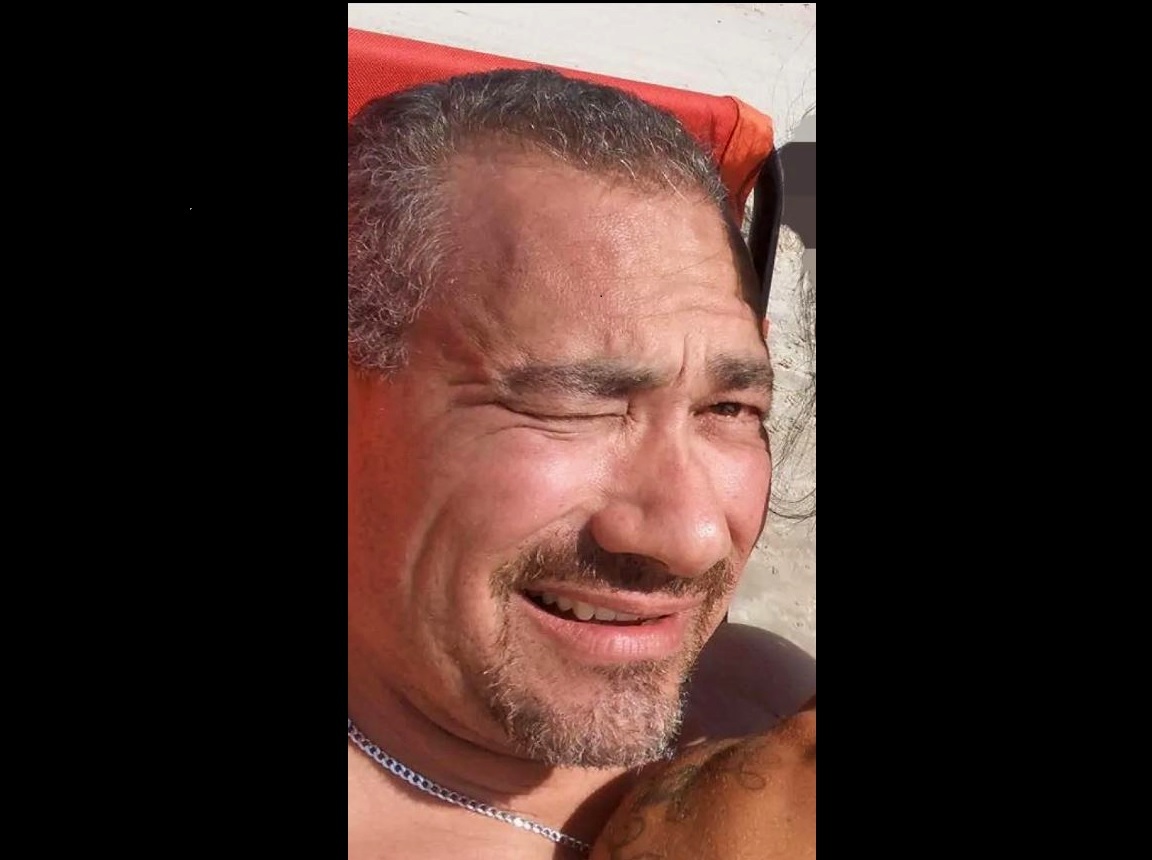
During Parker's career, complaints from members of the public that he was unnecessarily violent against them have led to four disciplinary hearings. Three hearings resulted in convictions under the Police Services Act.
In the discipline hearings, officers spoke of his potential for rehabilitation and allowed him to keep his job. He was also sent for anger management training twice.
Parker, 54, is scheduled to go to trial in September on charges of assaulting a fellow officer with a weapon.
"All eyes are on Niagara now," Toronto criminal and disciplinary litigation lawyer Danielle Robitaille told The Fifth Estate's Mark Kelley. "The question is, why didn't they spot the red flags sooner?"
Parker and his lawyer did not respond to interview requests.
I: An inside look
In 2013, St. Catharines resident Norm Koop pulled over to help when he saw the road rage incident between Parker and Plato and called 911. The Fifth Estate has obtained copies of two 911 calls placed from the scene.
Koop said he was surprised to learn the man trying to haul Plato from his car was a police officer.
"He claims he was an officer," a witness told the 911 dispatcher. "There's no way an officer would grab a guy by the head like that."
Koop said he tried to intervene, but alleged Parker shoved him in the chest.
"He let the guy go and he looked at me with this crazy look and he walked towards me, he didn't run," Koop said in an interview with The Fifth Estate. "Then all of a sudden, kaboom, he nailed me really good."
The Fifth Estate obtained a video of the police interview with Plato, the driver who Parker tried to pull out of the truck.
Police officers responded to the scene and took the witnesses' statements. But Plato also later went to a police detachment to ensure officers received his complaint about Parker’s behaviour.
Police took Plato to an interview room where an investigator cautioned him that he might be charged with dangerous driving for his role in the conflict.
"Before I get any type of statement from you, I want you to be aware of the jeopardy that you may be facing," Niagara Regional Police Det. Sgt. Budd Rung said on the video. "I'm not saying you are facing anything, but I want you just to be aware of that."
Plato then insisted he was not at fault, and that all he did was honk at a car for cutting him off.
"I don't know who he is, he comes out of the truck, like a madman," Plato told the officer.
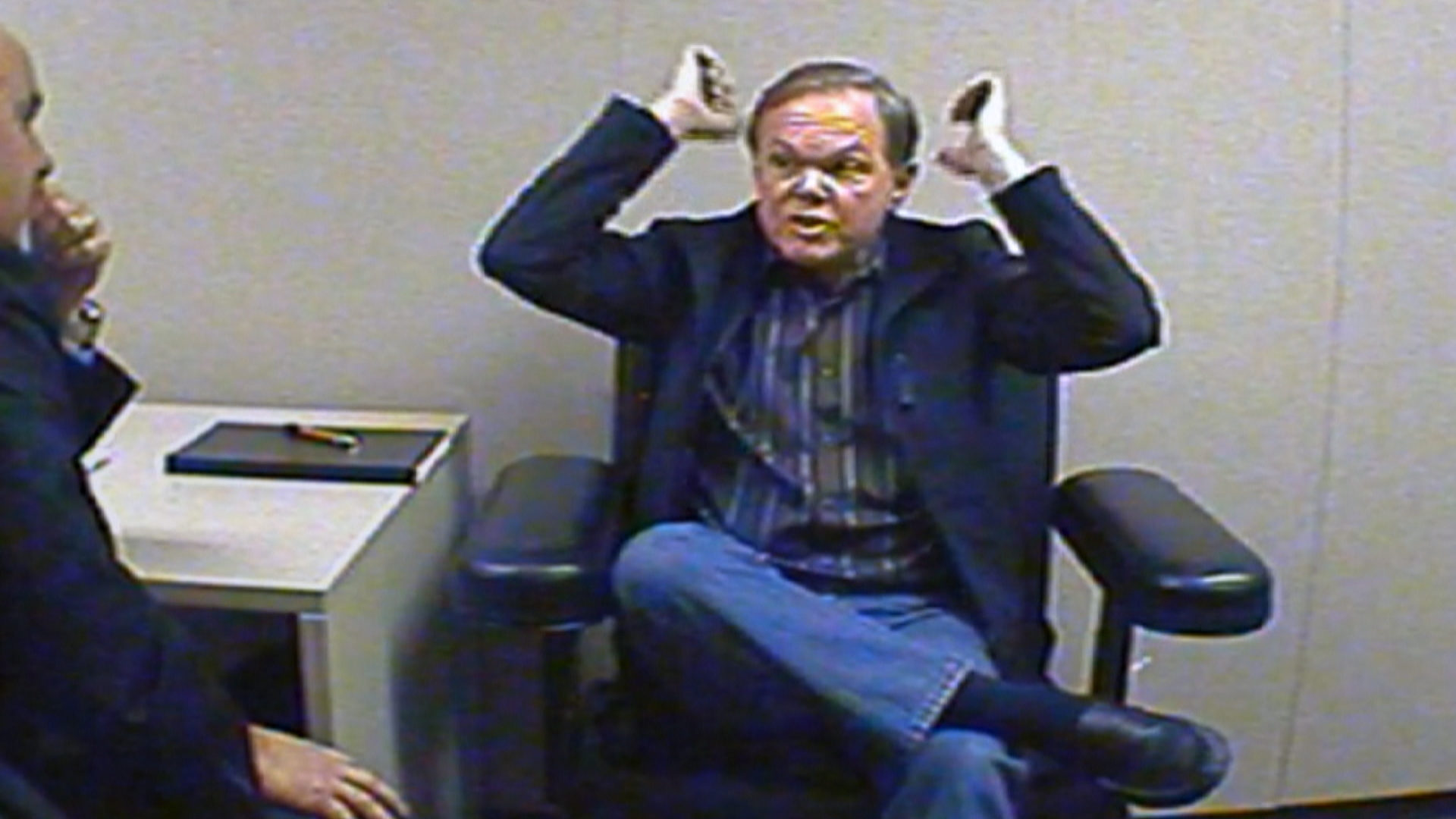
At several points in the interview, the investigating officer said Niagara Regional Police would take these complaints seriously and that he believed police officers should be held to a higher standard.
Rung also describes the difference between the Police Services Act and the Criminal Code, suggesting that Plato might see justice through Niagara’s police discipline system.
"I can’t say to you, 'Here, you come to court and you get up,' because it's up to you and if you're not interested in pursuing, I’m certainly not going to victimize you again and say that you have to," Rung said.
Rung told The Fifth Estate: "I don't recall trying to influence Mr. Plato in any direction."
He added: "Any inference that I tried to minimize Mr. Plato's concerns [is] false."
Parker was charged under the Police Services Act, and pleaded guilty to discreditable conduct and two counts of using unnecessary force against a member of the public. He was docked 120 hours of pay, the equivalent of three weeks' wages.
That result is only known because a local newspaper reporter happened to attend the sentencing hearing. Until that point, Parker's latest charges had gone unreported.
The discipline hearing officer, a superintendent, said in his sentencing remarks that he noted how the lack of coverage gave the police service protection from reputational damage.
"Depending on what media is in attendance here today, it may continue and the reputation may not be impacted severely," the hearing officer said, according to a report by The Standard.
"However, in the event it does get published, it will no doubt have a detrimental effect on the reputation of the Niagara Regional Police Service."
Niagara Regional Police do not list their internal discipline decisions on their website or provide those upon request.
II: Secret discipline
Police officers across Canada face internal discipline at their home stations every month for serious allegations. But the way decisions are tracked make it nearly impossible for the public to find out how many officers incur records — and how many have been repeatedly violent.
Koop and Plato reported the incident to police, alleging Parker had assaulted them both, but the officer was never criminally charged.
Koop and Plato say they learned that Parker was disciplined by reading about it in the paper, and that the police never got back to them.
"They’re being paid by us taxpayers to serve and protect," Koop said. "I don't feel served or protected if you put a crazy guy like that back on the street with a badge and a gun."

The Fifth Estate pieced together Parker's history through court documents, newspaper clippings and other sources after Niagara Regional Police refused to release the disciplinary decisions involving Parker through Ontario’s freedom of information legislation.
The police force said that although the public is allowed to attend disciplinary hearings, hearing decisions constitute private employment records.
Niagara's police force won a freedom of information battle 20 years ago that found the decisions could be viewed as employment, thus private, records.
The response in the Parker case was in sharp contrast to how nearby police forces in Toronto and Peel responded to a similar request. The Fifth Estate asked both agencies for disciplinary decisions. Both police forces said freedom of information requests were not required and emailed unredacted records within days.
Ontario’s legislation governing police does not state explicitly that disciplinary decisions must be made public. It also does not explicitly state they must be kept secret, leaving it up to a police service’s interpretation.
The answer is not to close yourself off further.
The uneven application of the same law is par for the course in Canada, lawyer Danielle Robitaille said. She said the rules allow for secrecy because they are not clear.
In 2016, the Ontario government hired Justice Michael Tulloch to lead an inquiry into police oversight, with Robitaille as his lead counsel. There had just been a series of police shootings, so the team was tasked with assessing how police are investigated for both discipline and criminal offences.

The team interviewed hundreds of people, from community members to police chiefs, and made dozens of recommendations to overhaul how police are governed.
Robitaille and the team urged the Ontario government to take discipline out of the hands of police forces and instead create an independent tribunal to adjudicate and prosecute such allegations within five years.
All decisions, they recommended, should be made public in a single online database that anyone could search.
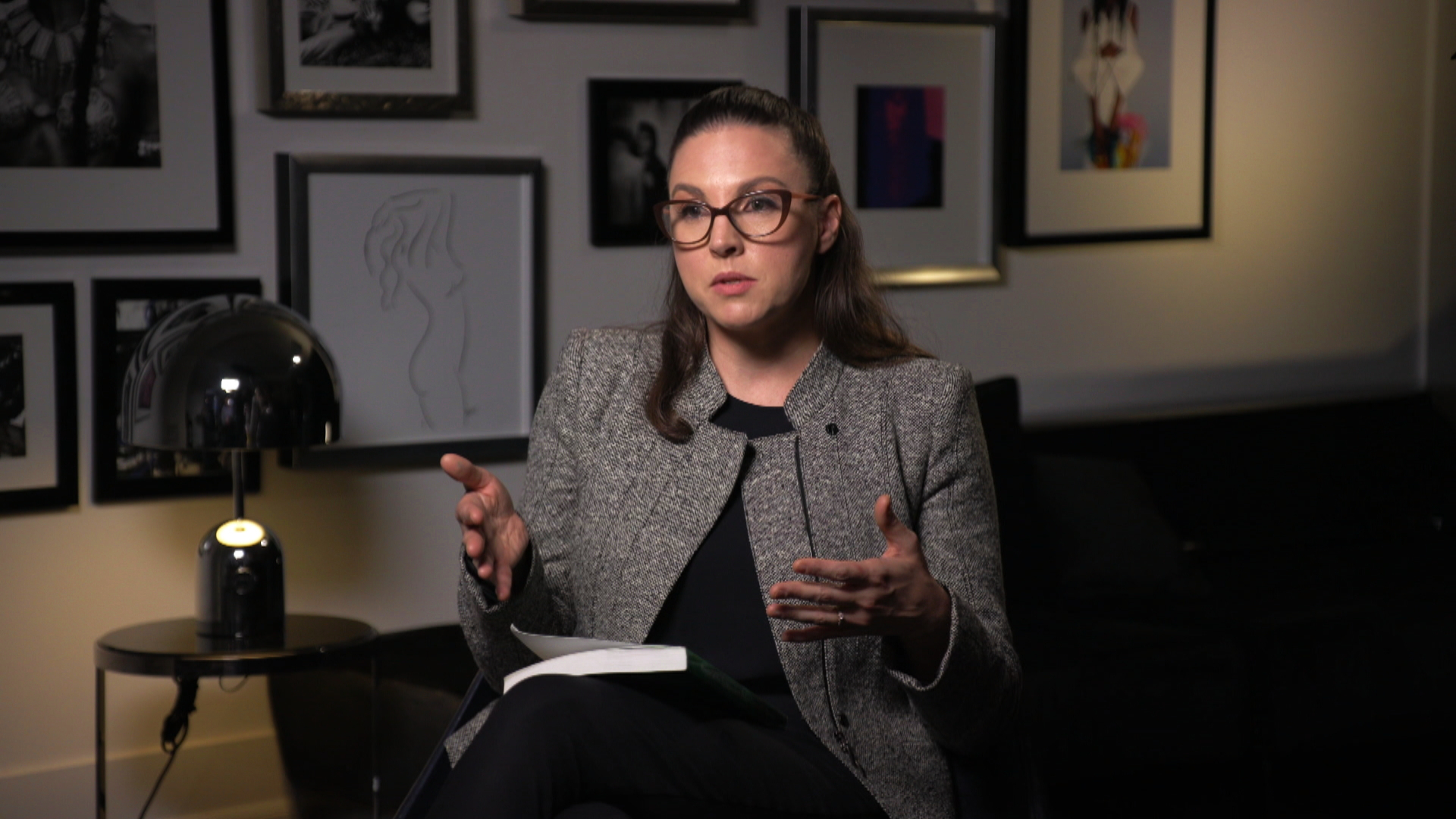
Without that level of independence and transparency, Robitaille said, it’s “hard to know what's a bad apple and what is a completely rotten bushel.”
"The answer is not to close yourself off further, shut the doors in, shut yourselves in and try to remain immune from criticism."
Robitaille said her team's recommendations have mostly been shelved.
III: Growing up
Phillip Parker, Nathan Parker’s younger brother, watched his sibling go from an eager teen to a police officer who frightens him.
"He turned to weight training to build himself up and I think that wasn't just for athleticism," Parker told The Fifth Estate. "I think that was for the purpose of becoming a police officer to become powerful and intimidate, or overpower people who are resisting."
Nathan Parker joined the Niagara Regional Police Service in 1990 fresh out of the Ontario Police College. Phillip Parker attended his graduation, which he called a "joyous occasion" for the family.
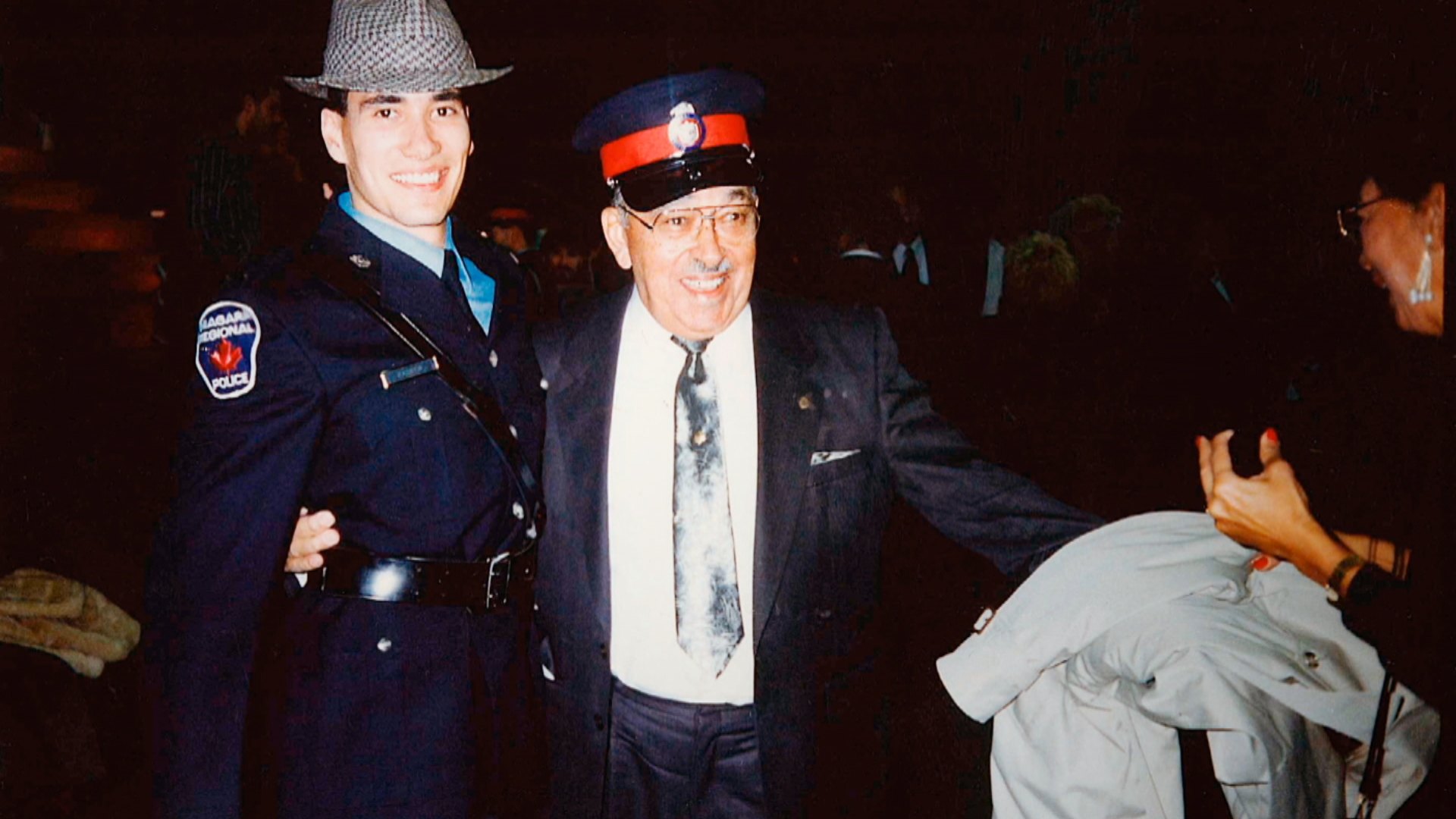
Their grandfather, a Second World War veteran, gamely swapped his "grandpa hat" for his grandson’s police cap to pose for a photo.
"He started off good," Phillip Parker said, his voice catching.
"So many bitter and unhappy memories keep mixing together and becoming toxic – it's hard to separate them."
In the first few years of his career, Phillip Parker said his brother would send the family newspaper clippings of police activity that made him proud.
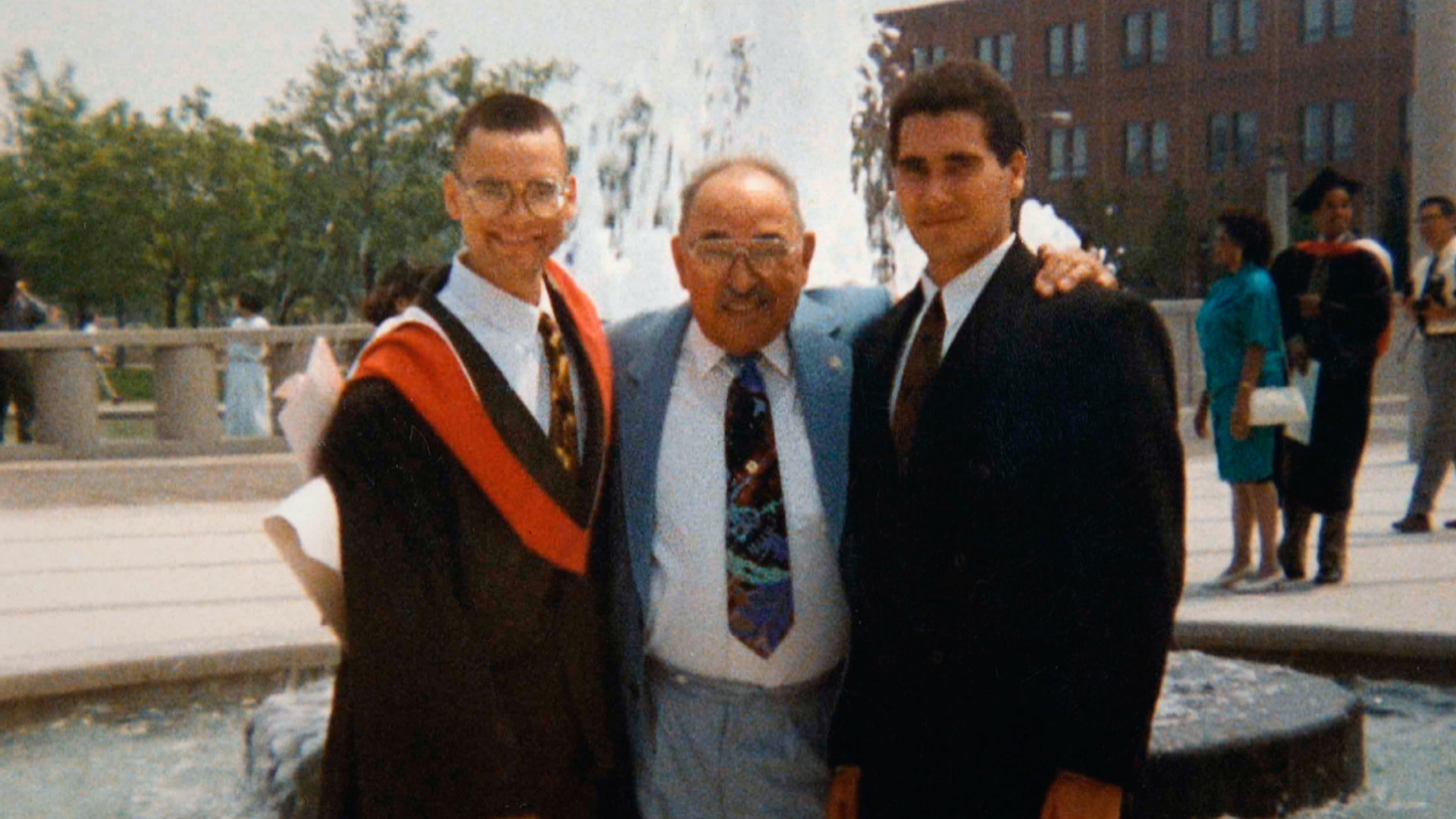
By the early 2000s, however, the complaints against Nathan Parker started coming in.
Today, Phillip Parker said if his brother showed up to his home, he would call the police.
"I looked to his example, I admired him, I tried to emulate him," he said. "But at the same time, there was also fear because whenever he became angry, he was vicious."
IV: The shooting
In 2018, Phillip Parker said he was scanning local news headlines online when he came across one about a Niagara Region Police officer shooting a fellow officer.
"I just saw that headline and I thought, 'Here we go, he's finally gone too far,' " Parker said.
"I just started scrolling down looking for his name, and as soon as I saw 'Nathan Parker' I went, 'bingo,' because of course it was him."
WATCH | Phillip Parker says happy and sad memories of his brother mix together:
A routine assignment to direct traffic had ended with Parker bleeding on the road. Another officer, his supervisor, had shot him 10 times.
A Niagara Regional Police team was reconstructing a collision at an intersection in the rural community of Pelham, just outside St. Catharines, on Nov. 29, 2018. Parker was instructed to tell drivers to take an alternative route.
Det. Sgt. Shane Donovan was supervising the work, and claimed Parker had left the scene without asking permission. Parker's fiance would later tell CBC News that he had tried to ask permission to leave but received no response.
The details of what happened next, according to Donovan's perspective, are laid out in a $2-million lawsuit he has filed against Parker, the Niagara Regional Police Service and the Niagara police board.
None of the defendants had filed statements of defence by time of publication.
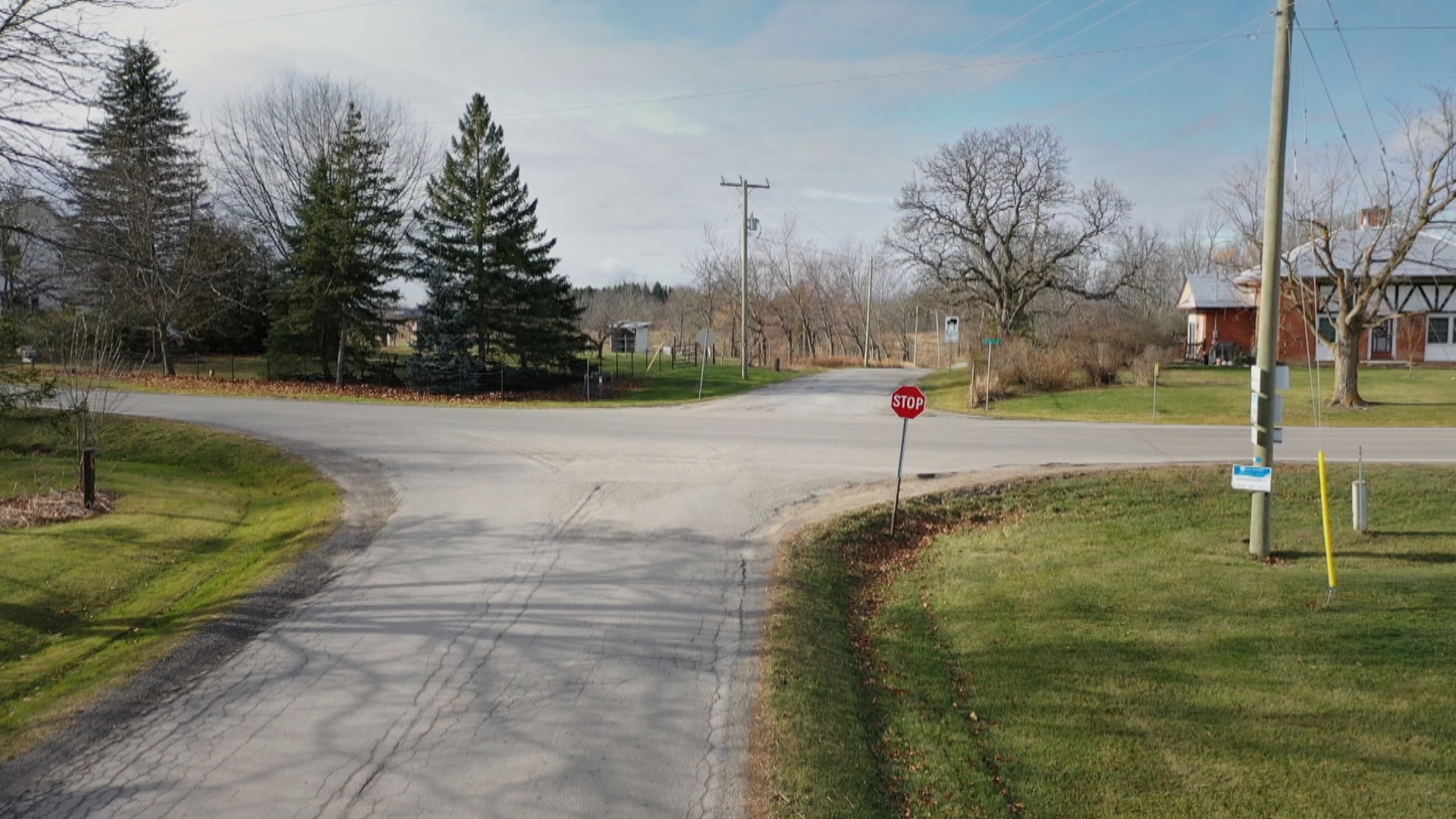
When Parker returned, the lawsuit says, Donovan confronted him about leaving his post. Parker allegedly responded in an aggressive manner with cursing and got out of his cruiser.
The lawsuit alleges Parker then shoved Donovan in the chest hard enough to make him take a few steps back, at which point Donovan told Parker he was under arrest for assault.
Donovan alleged Parker punched him repeatedly and Donovan said he attempted to punch Parker back in defence while retreating to his cruiser.
At that point, Donovan alleged, Parker drew his collapsible baton and walked toward him.
In return, Donovan said he drew his service revolver. The lawsuit said the gun was the only weapon he had on him that day.
Donovan alleged Parker, with "intent of extreme malice and harm," then said, "Oh, you want to do this?" before throwing down his baton and pulling out his own pistol.
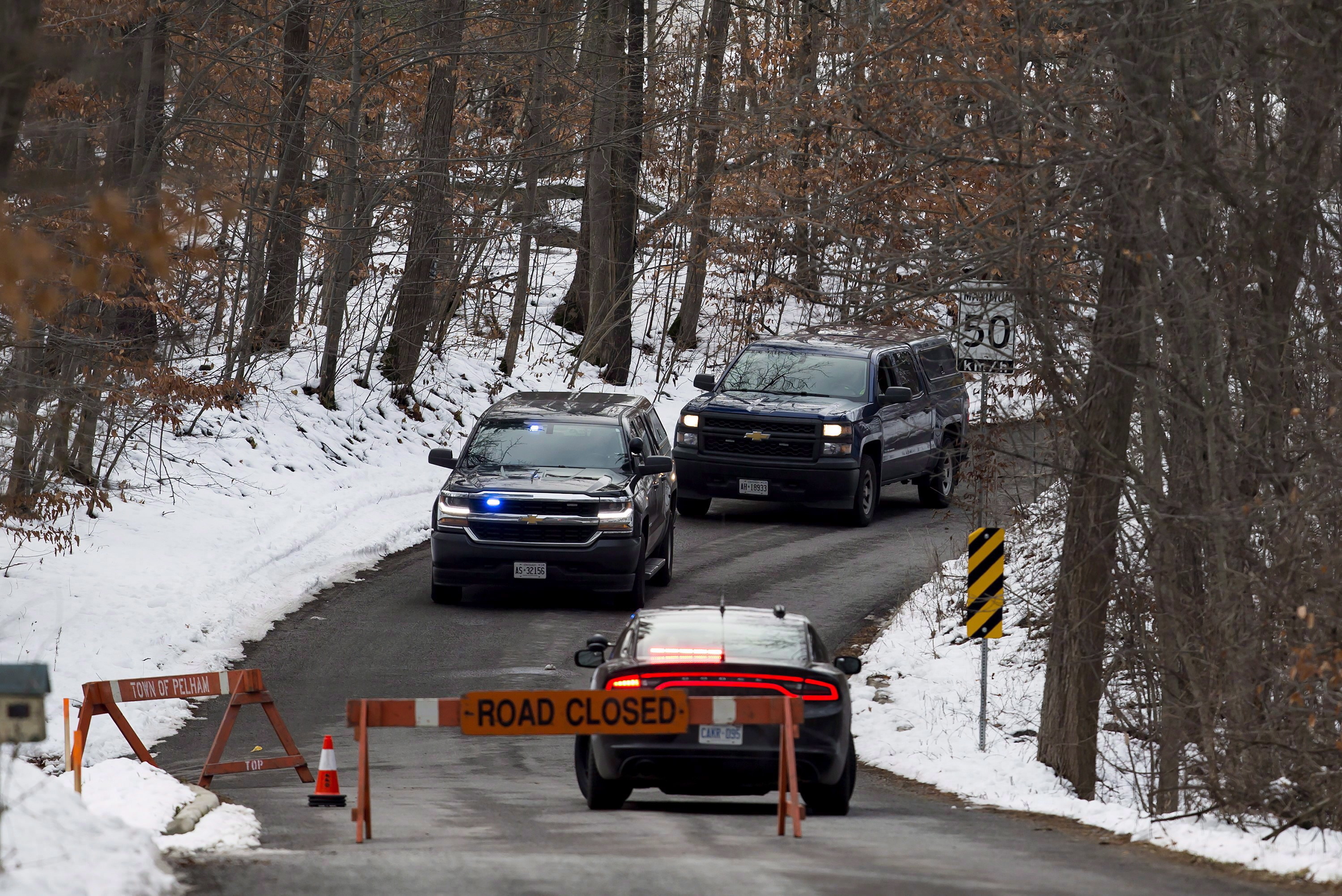
Donovan said he feared for his life because he was not wearing a bulletproof vest, so he fired.
In total, Donovan shot Parker 10 times, The Fifth Estate has learned. One of the bullets grazed Parker’s nose. Others hit his leg, shoulder and stomach.
Parker was airlifted to Hamilton General Hospital with serious injuries. He required bowel reconstruction surgery and remains off work on paid long-term disability.
Pelham resident Robin Zavitz drove by that afternoon to see the intersection full of police vehicles with lights on.
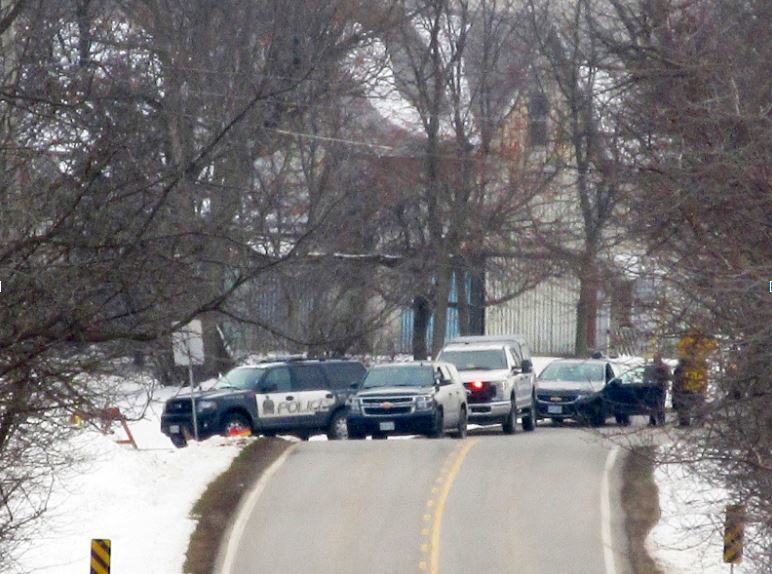
She snapped a photo and went home. Then she heard the news.
An officer had shot another officer, just minutes from her house.
"It's quite a twisted tale. It's not what you would expect from your local police force," Zavitz told The Fifth Estate. "There wasn't a lot of information out there, other than one officer had shot another in broad daylight."

Officers across Canada have fallen victim to shootings on the job over the years, sometimes dying from their injuries. But this case — a confrontation between two officers on a routine job assignment — was different.
Parker’s supervisor has admitted to shooting the constable — when faced, he said, with a threat to his life.
Donovan did not respond to an interview request.
V: Legal journey
To look into what happened, Niagara police reported the shooting to Ontario’s Special Investigations Unit (SIU), the agency that investigates incidents involving police that cause serious injury or death.
The SIU charged Donovan with attempted murder.
However, the Niagara police had also asked the Ontario Provincial Police (OPP) to do a separate investigation into whether there was other criminal wrongdoing.
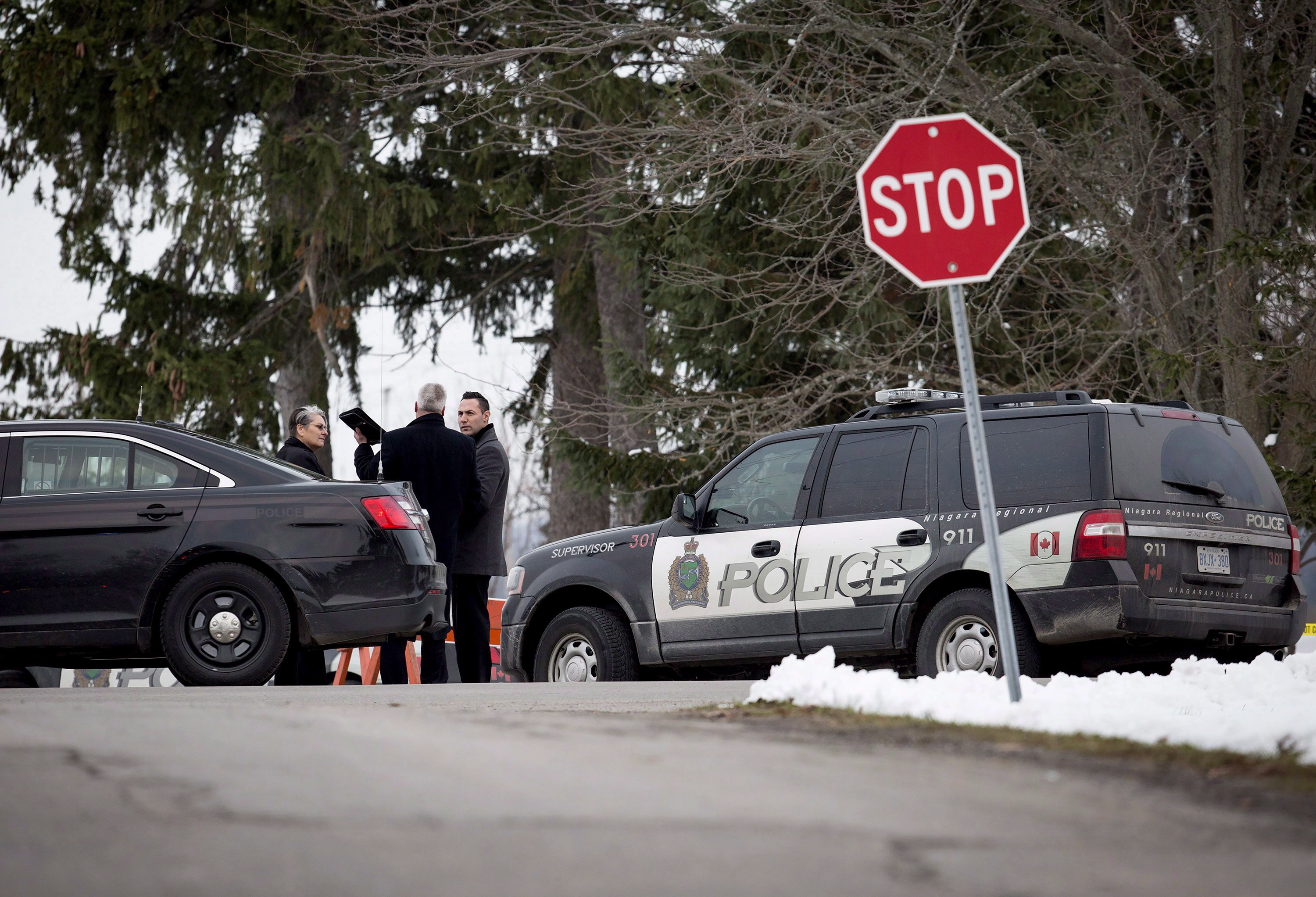
The OPP decided to lay different charges, this time against Nathan Parker.
The detectives alleged Parker assaulted Donovan, then resisted arrest before again assaulting the officer, this time with a baton and firearm.
Just because you have a history of disciplinary infractions doesn't mean that ... someone's justified in shooting you.
By that time, Donovan's lawyers had already stated publicly that their client fired the shots in self-defence.
The Crown dropped the charges against Donovan. Prosecutors said they did not see a reasonable prospect for conviction.

The SIU director who originally charged Donovan told The Fifth Estate he couldn’t comment on what he believes transpired in the shooting because Parker’s charges are still before the courts.
"But the fact that I laid a charge and someone else withdraws it doesn't mean we always agree on whether it should have been withdrawn, and I wouldn't lay the charge if I thought that it should've been withdrawn," Tony Loparco said.
"Just because you have a history of disciplinary infractions doesn't mean that ... someone's justified in shooting you."
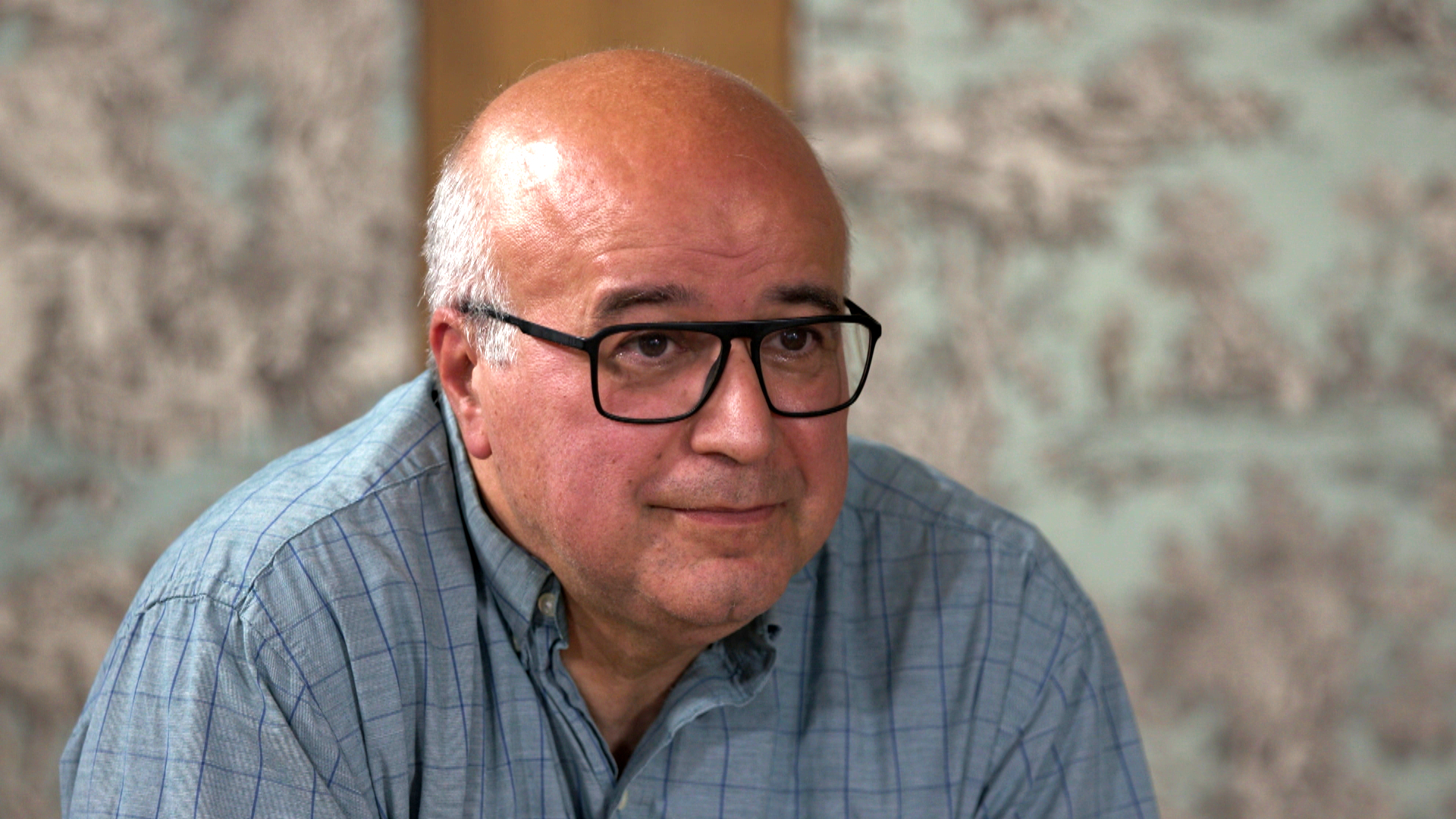
That's exactly what Donovan’s lawsuit alleges, however.
His lawsuit alleges the Niagara Regional Police Service and its board failed to properly discipline Parker over the years and continued to employ him despite Parker being known “to have an uncontrollable temper and abuse his authority to harm individuals.”
His lawyer, Margaret Hoy, said she has represented clients in at least 100 claims against the Niagara Regional Police Service over her 30-year career, including another involving Parker.
The Fifth Estate interviewed Hoy before she filed the lawsuit. In that interview, she said she sees the same Niagara officers — whom she calls "frequent flyers" — repeatedly accused of assaulting members of the public.
"We expect the police to do the right thing, and it doesn't always happen in Niagara," she said.

Niagara Regional Police Service Chief Bryan MacCulloch declined comment because Parker’s case remains before the courts.
The acting chair of Niagara’s police services board and its members also declined to comment, saying the responsibility for police discipline rests with the chief.
VI: Cyclist arrest
In 2008, Hoy helped a St. Catharines resident sue Parker and his superiors over another alleged road rage incident.
Pino Carbonara claimed Parker’s SUV came dangerously close to his bicycle, and when Carbonara yelled his disapproval, Parker pulled over.
Carbonara told police the off-duty officer tried to pull him off his bicycle and threw him to the ground.
Parker then arrested him for mischief, claiming the cyclist damaged his vehicle’s mirror. But Carbonara was never charged.
These are individuals with assault training, with guns, with Tasers. The watching of them should be a public affair, not a private affair.
Carbonara filed a complaint and the police disciplinary hearing ruled in the cyclist’s favour.
The local newspaper, The Standard, reported that the hearing officer determined Parker acted "with a total lack of professionalism, judgement and courtesy."
"A strong message must be sent to this officer so that we as an organization and the public at large maintain the high trust and accountability that the public demands of its police officers," the hearing officer said, according to the report.
Niagara Regional Police docked him 90 hours leave time and sent Parker for retraining.
Hoy said she never fully understood what happened in Parker’s discipline case because Niagara police refused to give her a copy of the hearing officer’s decision.

"One of the problems we have is the discipline records of the Niagara Regional Police are not transparent. We have a great deal of difficulty getting them," Hoy said.
"These are individuals with assault training, with guns, with Tasers. The watching of them should be a public affair, not a private affair."
Carbonara’s lawsuit was settled out of court.
VII: ‘A bloody war’
Wayne Penner, another St. Catharines resident, also tried to seek justice through civil court for a case involving Nathan Parker. After legal wrangling up to the Supreme Court of Canada, his lawsuit was also settled confidentially.
In January 2003, Penner was attending court to support his wife, whom Parker had charged with failing to display her licence plate. Penner was known to police at the time for past assault and criminal harassment convictions.
Police alleged Penner repeatedly interrupted court proceedings, and then refused to leave court when asked.
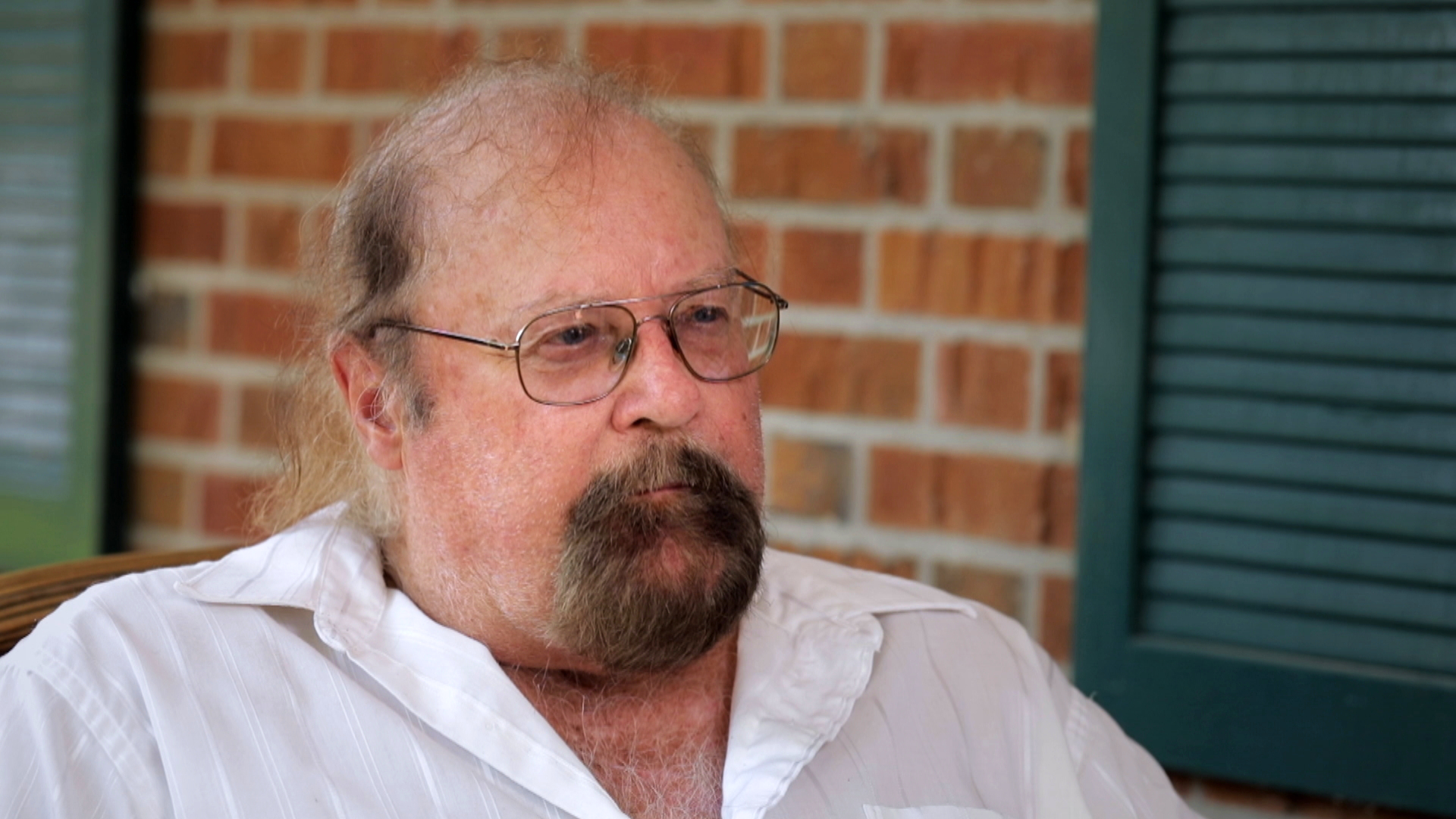
Penner was charged with causing a disturbance and resisting arrest. His charge sheet states the arresting officer, Nathan Parker, had "to apply force to gain compliance."
Penner still has photos of deep purple bruising to his body and face. "It looked like I had been through a war, a bloody war," he told The Fifth Estate.
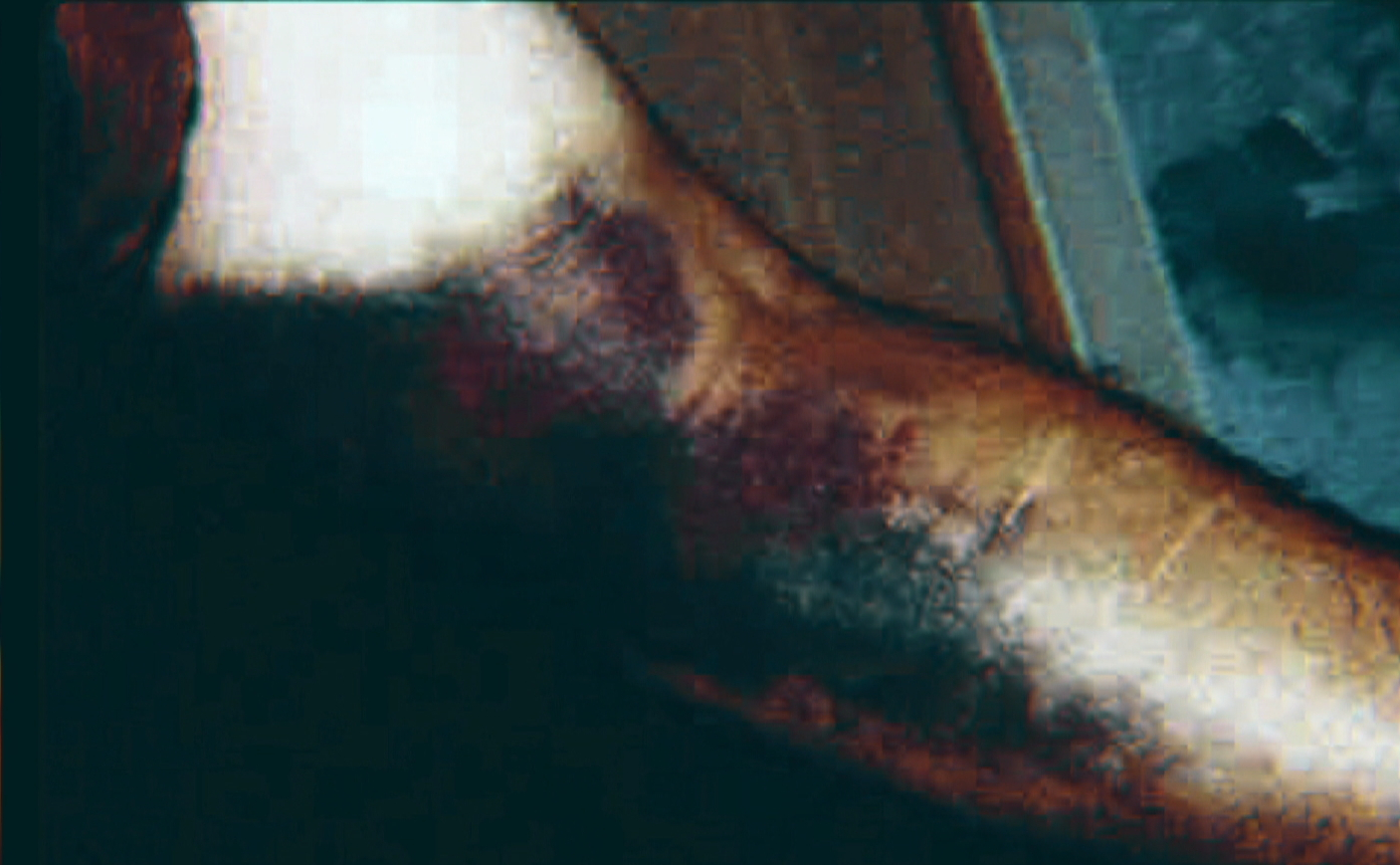
Court records state Parker and his partner used force to pull Penner out of the courtroom and again used force to handcuff him. The officers later strip-searched Penner and put him in a holding cell, records state.
"He sustained a black eye, numerous scrapes, a bruised knee and a sore wrist, elbow and sore ribs," a Supreme Court of Canada decision said. "Mr. Penner was escorted by police to a hospital."

Penner’s charges were later withdrawn.
He filed a complaint against the officers, alleging excessive use of force, but an independent adjudicator hired by the police chief dismissed his allegations.
The adjudicator found Parker had lawfully arrested Penner without unnecessary force.

"So, what he's saying is you can actually choke a guy, beat him to a pulp in the handcuffs, choke him, boot him, kick him," Penner said. "That's all legal, no problem, Canadian law, according to him."
Penner then appealed to the Ontario Civilian Commission on Police Services, which reversed the hearing officer’s decision and found the arrest unlawful. Parker, in turn, appealed that decision to the Ontario Divisional Court, which found the officers acted legally. The court restored Parker’s Police Services Act acquittal.
Penner’s wife, Marlene, said that to this day, she's scared of running into Parker.
"I would not want to meet him in a dark alley," she said. "I wouldn't wish that on anyone."
VIII: Pepper-spraying a teen
While the Penner complaint wound its way through court in 2005, Parker underwent a standard use of force training course.
Days later, Parker used force against a teenager who would complain to Niagara police.
Parker and his partner had arrested a 16-year-old boy and his friends in St. Catharines after police received a report that a group of teenagers had robbed another teen in the area.
The boy resisted arrest.
I am of the belief this officer has an anger-management problem and needs to be brought under control.
Parker used force to handcuff him, then put him in the back of the police cruiser, where he shot pepper spray in his teen’s face, according to discipline tribunal records.
At an internal discipline hearing, Parker was convicted of two counts of misconduct under the Police Services Act for using unnecessary force and failing to report use of pepper spray.
WATCH | Reporter Grant LaFleche says the teen was handcuffed before being pepper-sprayed:
The hearing officer docked him 52 hours of time off, an annual performance allowance of roughly $2,700 and sent him to anger-management counselling.
"I am of the belief this officer has an anger-management problem and needs to be brought under control," said the officer, according to an article in The Standard.
Reporter Grant LaFleche attended part of the hearings for The Standard.
"I can't pass judgement on it when I'm covering it, but you do think to yourself: 'How does he still have a badge? Does the community not deserve better than somebody who behaves this way?' " LaFleche said.

Parker appealed to the Ontario Civilian Complaints Commission on Police Services, which upheld his discipline conviction.
LaFleche said that despite covering some serious offences, he doesn’t remember ever hearing an official calling for the chief to fire a police officer over their conduct.
"When it comes to the specific issue of police discipline, and police disciplinary hearings, they keep kind of kicking themselves in the shin," LaFleche said. "The Nathan Parker case is precisely one of those examples that I don't think the service has calculated the damage to its reputation longterm."
IX: Discipline ‘does not work’
Across Canada, jurisdictions allow police to police themselves through a scattershot of policies and legislation that rarely forces officials to publicize findings of investigations into alleged police violence against the public.
Canadian communities often only learn of the findings thanks to a shrinking number of local journalists who attend to report on what was said. In other instances, the hearings operate in complete secrecy.
WATCH | Lawyer Danielle Robitaille calls for a more transparent police disciplinary system:
Saskatchewan legislation explicitly bars the release of internal disciplinary findings, despite the hearings addressing serious allegations.
A Moose Jaw officer’s lengthy discipline history — including six internal convictions — only came to light last year when he appealed his dismissal from the police force and disputed the allegations made against him.
Let's stop pretending that we have a disciplinary system internally that works.
The findings against him involved harassment, use of force and inappropriate physical contact with a colleague but had previously been secret. Only his appeal, which results in public documentation, allowed those disciplinary findings to be made public.
Robitaille said she worries that officers who struggle to behave properly, and perhaps don’t have the right disposition for the job, get "slapped on the wrist" repeatedly when discipline isn’t made public.
"Some of those people just get worse," she said.
Clayton Ruby, a veteran civil rights lawyer in Toronto, said the current discipline system also leaves officers to collect numerous complaints that may not be acted upon.
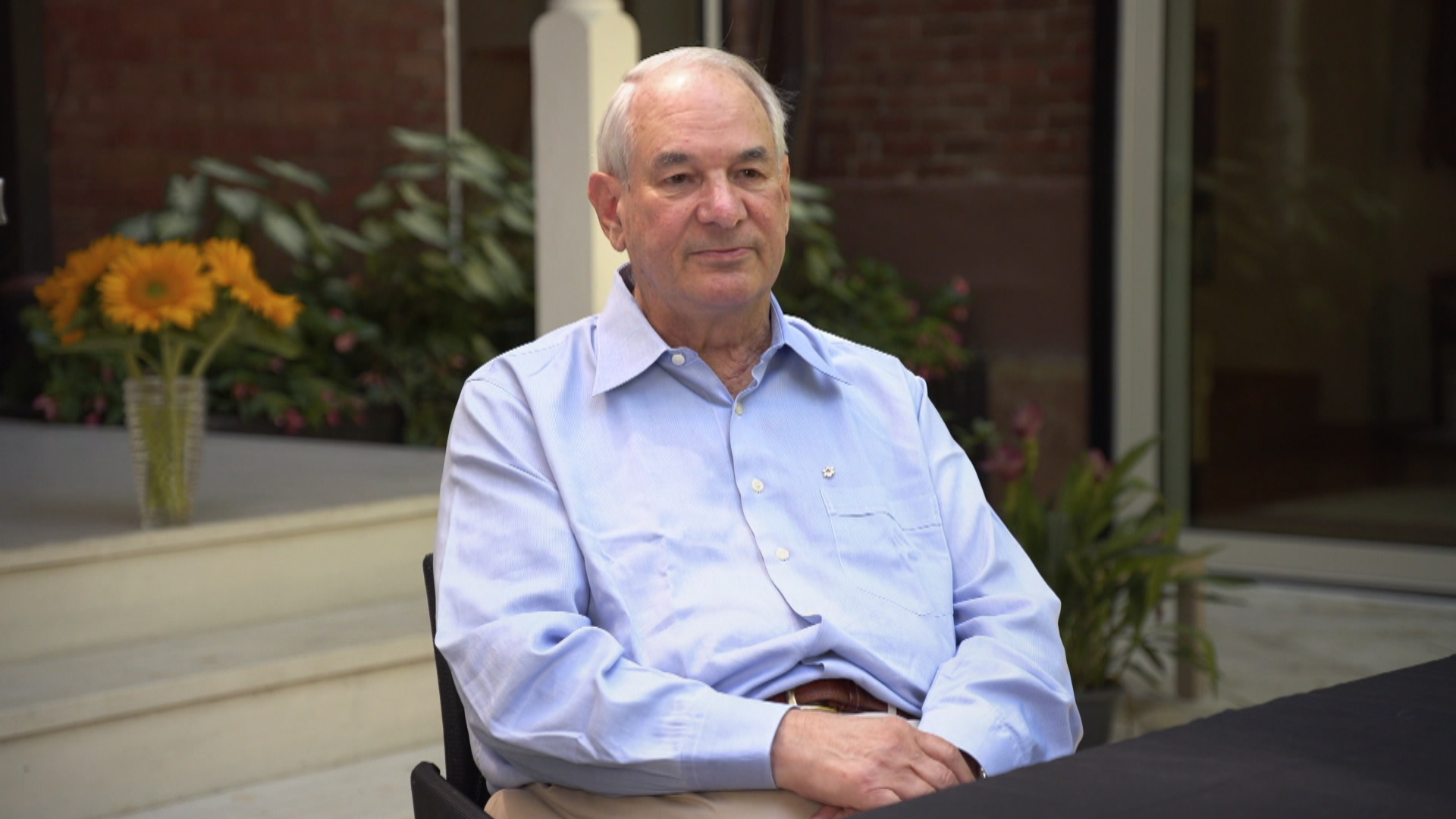
Police departments, he said, don’t want their members "getting up in arms about people losing their jobs when they are out there doing the best they could." Instead, Ruby said he believes the disciplinary system is "inadequate" and does not work in the public interest.
"Let's stop pretending that we have a disciplinary system internally that works. It does not work," he said.
"It's irresponsible, but we do not govern the police. The police govern us."
X: Right place, right culture?
Robitaille and others are watching closely as Nathan Parker’s trial approaches. The case may offer some explanation as to why Parker faces charges and not his shooter, and what, if any, effect his disciplinary history had on that day.
"Should Nathan Parker have been made an officer in the first place? Did he have the right disposition? Did he have the right training? Did he have the right mentorship? Was it the right culture at the Niagara Police Service? These are questions that we can ask about this case that are interesting," Robitaille said.
"It's certainly a case that we're all watching with great interest."
Parker’s brother is one of those keeping an eye on the case. Phillip Parker said he hopes the trial ends his career.
"Anyone who knows my brother, anyone who has been a witness or the target of his violence, would automatically know that [his shooter] would have been forced to act in self-defence. There is no question in my mind," he said.
"This time he picked the wrong victim. That bully picked a victim who knew how to defend himself."
- Watch full episodes of The Fifth Estate on CBC Gem, the CBC's streaming service.
- If you have a tip about this or any other story, contact rachel.ward@cbc.ca or ronna.syed@cbc.ca.
